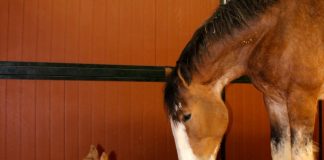 In effort to protect communities from toxic waste, United States Congress passed the Comprehensive Environmental Response Compensation and Liability Act of 1980 (CERCLA), more commonly known as the Superfund.
In effort to protect communities from toxic waste, United States Congress passed the Comprehensive Environmental Response Compensation and Liability Act of 1980 (CERCLA), more commonly known as the Superfund.
Therefore, several organizations in the livestock industry are seeking a congressional movement to affirm that these laws were never intended to apply to or regulate manure.
A bill1 has already been introduced to Congress that would amend CERCLA to provide that livestock manure is not included in the meaning of “hazardous substance” or “pollutant or contaminant” under that Act. The American Horse Council worked with the supporters of the bill to ensure that the definition of “livestock” included horses.
While the argument may seem straightforward, supporters should not be surprised to find opposition. According to a horse manure management study by Colorado State University, “Horse manure runoff into waterways may produce fecal coliform contamination levels that can be potentially hazardous to fish and anyone who drinks that water.” 2
It appears that the passing of the bill will be determined upon how hazardous Congress officials find manure to be.
1The House bill (H.R. 1398) was introduced by Representatives Collin Peterson (D-MN) and Ralph Hall (R-TX), along with 59 other Representatives. It was jointly referred to the Committee on Energy and Commerce and the Committee on Transportation and Infrastructure. The Senate bill (S. 807) was introduced by Senators Blanche Lincoln (D-AR), Mary Landrieu (D-LA), Pete Domenici (R-NM) and Saxby Chambliss (R-GA), along with 5 other Senators. That bill was referred to the Committee on Environment and Public Works.
2J.G. Davis, Colorado State University Cooperative Extension environmental soil specialist and professor, soil and crop sciences; and A.M.Swinker, former Cooperative Extension horse specialist and associate professor, animal sciences. Reviewed 1/2002.






Seems like another way for the goverment to fine or tax the horse industry and cause our precious hobby/love/pastime to cost more money.
My personal view is that discarding manure should be done judiciously — it can be a pollutant, especially for waterways. Wether the regulation of disposal should be regulated under the superfund heading is a wholly different question — that seems vastly exaggerated!
“Horse manure runoff into waterways may produce fecal coliform contamination levels that can be potentially hazardous to fish and anyone who drinks that water.”
— I wouldnt want to potentialy drink that water. Yuck!